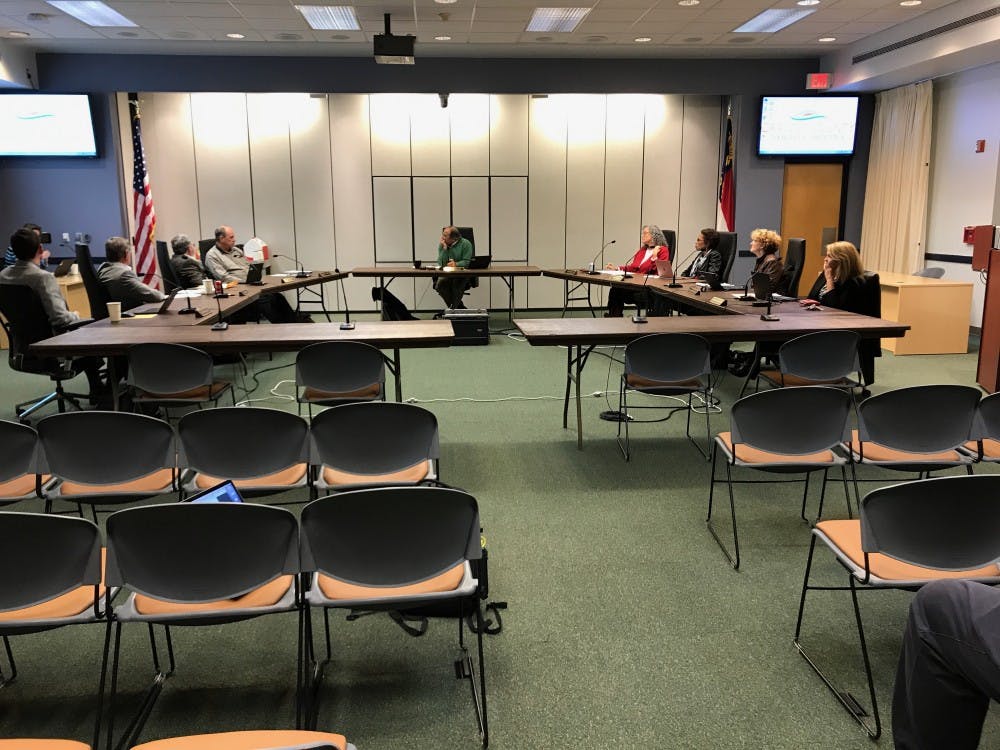Orange County Board of Commissioners unanimously agreed to repeal an ordinance that made it unlawful for women “over the age of 14 years, or any other physically developed female person,” to expose their breasts below the top part of the areola in public, earlier this month.
The "regulating exposure of the human female body to view" ordinance was established in 1971 and is very rarely enforced. Current North Carolina law, which supersedes local ordinances, states women may breastfeed in any public or private location, even if her nipple is exposed.
The board reviewed several other ordinances at the Nov. 9 meeting that might be considered out of date or in need of amendment. County Attorney John Roberts recommended to the board that they repeal the ordinance, which was described as “likely illegal and discriminatory.”
“This is one measure that is discriminatory to women,” County Commissioner Renee Price said. “It’s a very old policy.”
The county considers any violation of the ordinance a misdemeanor. While law enforcement cannot enforce the ordinance because of state law, Price said she thinks it is important to repeal the ordinance to provide gender equality in public spaces.
She said repealing the ordinance could mean the most to women who breastfeed. The ordinance technically allows law enforcement to punish breastfeeding mothers for showing their nipples in public.
Felicia Bond, a Wake County mother who recently breastfed, said laws that punish women for exposing their nipples while breastfeeding are unacceptable.
“Individuals, they see a breast and it’s like, ‘Oh my god, you’re demoralizing or disturbing the public,’” said Bond, a financial service representative. “No, I’m feeding my child.”
North Carolina’s Indecent Exposure Law dictates that men and women cannot show their private parts in public. The Indecent Exposure Law does not define what is considered private parts.




